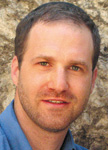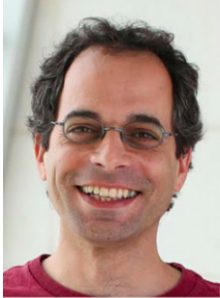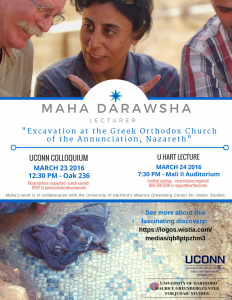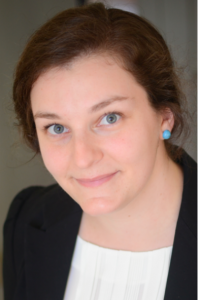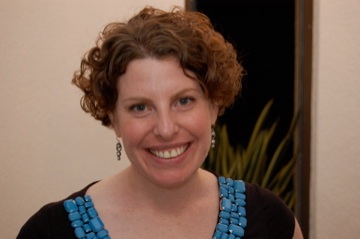 As part of the Center for Judaic Studies and Contemporary Jewish Life’s Faculty Colloquium Series, Professor Dalia Wassner will present “Multi-Directional Cosmopolitans: Women Warriors of the Southern Cone” on November 14, 2016, at 1:15 in the Class of ’47 Room at Homer Babbidge Library. Attending this event will count towards Sophomore honors. The lecture is being co-hosted by El Instituto: Institute of Latina/o, Caribbean, and Latin American Studies. A kosher lunch will be provided.
As part of the Center for Judaic Studies and Contemporary Jewish Life’s Faculty Colloquium Series, Professor Dalia Wassner will present “Multi-Directional Cosmopolitans: Women Warriors of the Southern Cone” on November 14, 2016, at 1:15 in the Class of ’47 Room at Homer Babbidge Library. Attending this event will count towards Sophomore honors. The lecture is being co-hosted by El Instituto: Institute of Latina/o, Caribbean, and Latin American Studies. A kosher lunch will be provided.
In the years after World War II, Latin America’s Southern Cone served as a refuge for former Nazis. A generation later, the military governments of the Southern Cone abducted and “disappeared” thousands of their own citizens, once again creating fragmented societies by demanding silence and collaboration in violent pursuit of “civilization” and “national purity.” Professor Wassner will highlight the historical parallels between the Holocaust and the “Dirty Wars” perceived by a cohort of Jewish feminist cultural activists in Argentina and Chile through an exploration of the Holocaust imagery these activists employed both during the dictatorships, through subversive cultural avenues, and in pursuit of reconciliation and democratization in their aftermath.
Dalia Wassner earned her Ph.D. in History at Northeastern University in 2012. She is currently a Research Associate at the Hadassah-Brandeis Institute of Brandeis University where her research interests include feminist cultural responses to violence in a trans-Atlantic frame, collective memory in terms of multidirectional memory and postmemory, and cultural connections between Jews and other minorities involved in Latin American processes of national democratization. Professor Wassner teaches Women’s Studies, Latin American Studies, and Jewish Studies, most recently at Emerson College, Boston University, and Brandeis University. Her book Harbinger of Modernity: Marcos Aguinis and the Democratization of Argentina (Boston: Brill, 2014), illuminates the intersecting roles of Jews and public intellectuals in bringing democracy to post-dictatorship Argentina.
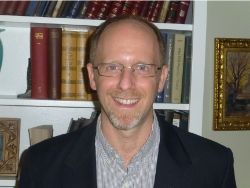 In 18th and 19th century Eastern Europe, much of the economy was based on vodka, and Jews were believed to be the only group sober enough to be entrusted with its production and sale. The Jewish-run tavern, leased from the Polish nobleman (poritz), became the center of leisure, hospitality, business, and other aspects of local life. However, as peasant drunkenness reached epidemic proportions, reformers and government officials sought to drive Jews out of the liquor trade. New archival discoveries demonstrate that rather than abandon the lucrative liquor trade, most Jews simply installed Christians as “fronts” and retained their tavern leases. The result—a vast underground Jewish liquor trade that continued down to the end of the 19th century—reflects an impressive level of Jewish-Christian coexistence that contrasts with the more familiar story of anti-Semitism and violence.
In 18th and 19th century Eastern Europe, much of the economy was based on vodka, and Jews were believed to be the only group sober enough to be entrusted with its production and sale. The Jewish-run tavern, leased from the Polish nobleman (poritz), became the center of leisure, hospitality, business, and other aspects of local life. However, as peasant drunkenness reached epidemic proportions, reformers and government officials sought to drive Jews out of the liquor trade. New archival discoveries demonstrate that rather than abandon the lucrative liquor trade, most Jews simply installed Christians as “fronts” and retained their tavern leases. The result—a vast underground Jewish liquor trade that continued down to the end of the 19th century—reflects an impressive level of Jewish-Christian coexistence that contrasts with the more familiar story of anti-Semitism and violence.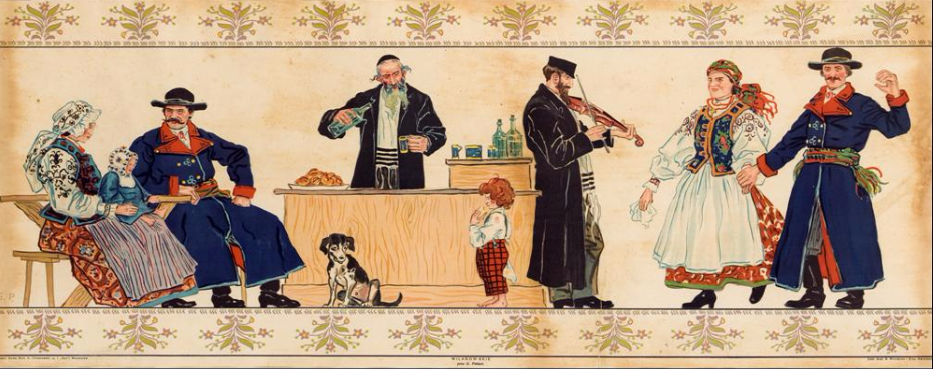
 Young American Jewish adults are more than five times as likely to report being targets of anti-Semitism as older American Jews are (Pew 2013). Since the vast majority of young American Jews spend four or more years studying at universities and colleges, anti-Semitism at institutions of higher education is an issue for the entire Jewish community.
Young American Jewish adults are more than five times as likely to report being targets of anti-Semitism as older American Jews are (Pew 2013). Since the vast majority of young American Jews spend four or more years studying at universities and colleges, anti-Semitism at institutions of higher education is an issue for the entire Jewish community.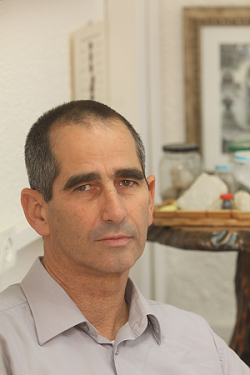 On September 27 at 12:30 PM in Dodd Conference Room 162, Dr. Efraim Lev will present “Medicine and Maimonides in Medieval Egypt: Notes from the Cairo Geniza.” The event is open to the public and a kosher lunch will be served.
On September 27 at 12:30 PM in Dodd Conference Room 162, Dr. Efraim Lev will present “Medicine and Maimonides in Medieval Egypt: Notes from the Cairo Geniza.” The event is open to the public and a kosher lunch will be served.